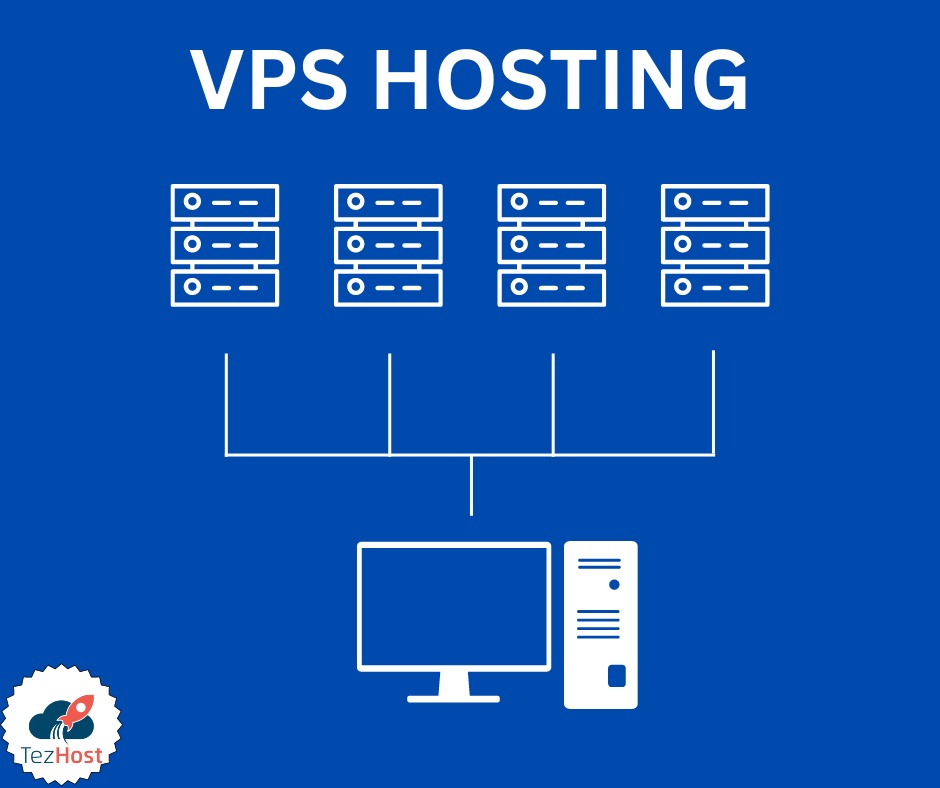How to Manage and Scale your VPS Servers
Virtual Private Servers (VPS) are an excellent option for those who need more control, flexibility, and resources than shared hosting provides. As your website grows, so do your traffic and resource needs. It becomes essential to manage and scale your VPS servers accordingly. In this blog, we will discuss everything you need to know about How to Manage and Scale your VPS Hosting to grow your traffic and resource needs.
Choosing the Right Type of VPS
Choosing the right type of VPS is crucial to ensure that your website has sufficient resources to handle your traffic and resource needs. When selecting a VPS provider, you should consider the following factors:
The amount of RAM, CPU, and storage capacity that the VPS offers should be in line with your website’s requirements.
You should choose an operating system that is compatible with the software and applications you plan to use.
The network bandwidth offered by the VPS should be adequate to handle your website’s traffic.
Look for a VPS provider that offers a high uptime guarantee to ensure that your website is available to your visitors.
Ensure that the VPS provider offers excellent customer support in case you run into any issues.
Along with different types of web hosting service, we at TezHost, we offer a range of VPS services to suit different needs, including fully-managed and unmanaged VPS hosting, with different operating systems and RAM, CPU, and storage configurations.
How Do You Manage a VPS Server?
Managing a VPS server requires a certain level of technical expertise, but it is worth it for the control and flexibility it provides. Here are some common tasks involved in managing a VPS server:
Server Configuration:
You can configure your server to suit your needs by installing and configuring the necessary software and applications.
Security:
You are responsible for securing your server against potential threats by installing and configuring firewalls, SSL certificates, and other security measures.
Monitoring:
You should monitor your server’s performance to ensure that it is running smoothly and optimize it if necessary.
Backups:
You should regularly backup your server’s data to protect against data loss.
Do I Need a Control Panel to Manage a VPS
A control panel is a web-based interface that allows you to manage your server and website easily. While it is not necessary to have a control panel to manage a VPS server, it can make it easier for beginners or those who are not comfortable with the command line. Some popular control panels for VPS servers include cPanel, Plesk, and DirectAdmin.
How Do You Maintain a VPS Server?
Maintaining a VPS server is crucial to ensure that it continues to run smoothly and perform optimally. Here are some regular maintenance tasks for VPS servers:
- Keep the operating system and software up-to-date to ensure that they are secure and perform optimally.
- Remove unnecessary software and files to free up disk space and optimize performance.
- Monitor server logs for errors and performance issues.
- Optimize server settings to improve performance.
Factors to Consider Before Scaling Your VPS Server
Before scaling your VPS server, you should consider the following factors:
Traffic:
You should determine whether your website’s traffic is consistently high or if it fluctuates. This will help you determine the appropriate scaling technique to use.
Resource Needs:
Evaluate your website’s resource needs to determine the type and amount of resources required to handle your traffic and resource needs.
Budget:
You should consider the cost of scaling your VPS server and ensure that it is within your budget.
Scalability:
Choose a VPS provider that offers scalable solutions that can accommodate your website’s growth over time.
Server Scaling Techniques
Scaling your VPS server is essential to ensure that your website can handle your growing traffic and resource needs. There are two main techniques to scale your VPS server: vertical scaling and horizontal scaling.
Vertical scaling:
It involves adding more resources to your existing server, such as increasing the RAM, CPU, or storage capacity. This technique is suitable if you have a small website that is experiencing a sudden surge in traffic or resource needs. However, vertical scaling has a limit, and you will eventually reach the maximum capacity of your server.
Horizontal scaling:
It involves adding more servers to your existing infrastructure to handle your traffic and resource needs. This technique is suitable for larger websites that require a more significant number of resources to handle the traffic. With horizontal scaling, you can add servers as your website grows, which makes it a more flexible and scalable solution.
Benefits of Managing and Scaling Your VPS Server
Improved Performance:
Managing and Scaling your VPS server helps to improve the performance of your website, ensuring that it can handle traffic spikes and resource needs.
Increased Reliability:
It helps to increase the reliability of your website, the risk of downtime and ensuring that your visitors can access your site whenever they need to.
Cost-Effective:
This can be a cost-effective solution compared to upgrading to a dedicated server. It allows you to add resources only when you need them, reducing unnecessary costs.
Better Security:
Scaling your VPS server can also enhance your website’s security by providing additional resources to handle security-related tasks.
TezHost VPS Services
At TezHost, we offer a wide range of VPS services to suit different needs and budgets. Our VPS hosting plans include fully-managed and unmanaged VPS hosting, with different operating systems and RAM, CPU, and storage configurations. We are also offering VPS Hosting in Pakistan for our Pakistani clients in cheap reate.
Our fully-managed VPS hosting plans take care of all aspects of server management, including server configuration, security, monitoring, and backups, leaving you free to focus on growing your business. TezHost VPS hosting plans also give you complete control over your server and allow you to configure it to your specific needs.
Conclusion
Managing and scaling your VPS servers is crucial to ensuring that your website can handle your traffic and resource needs as it grows. Choosing the right type of VPS, managing it effectively, and maintaining it regularly can help you ensure that your website is available to your visitors and performs optimally. At TezHost, we offer a range of VPS services to suit different needs and budgets, so you can find the perfect hosting solution for your business.
Comment:







No Comments yet!